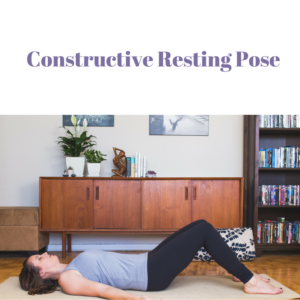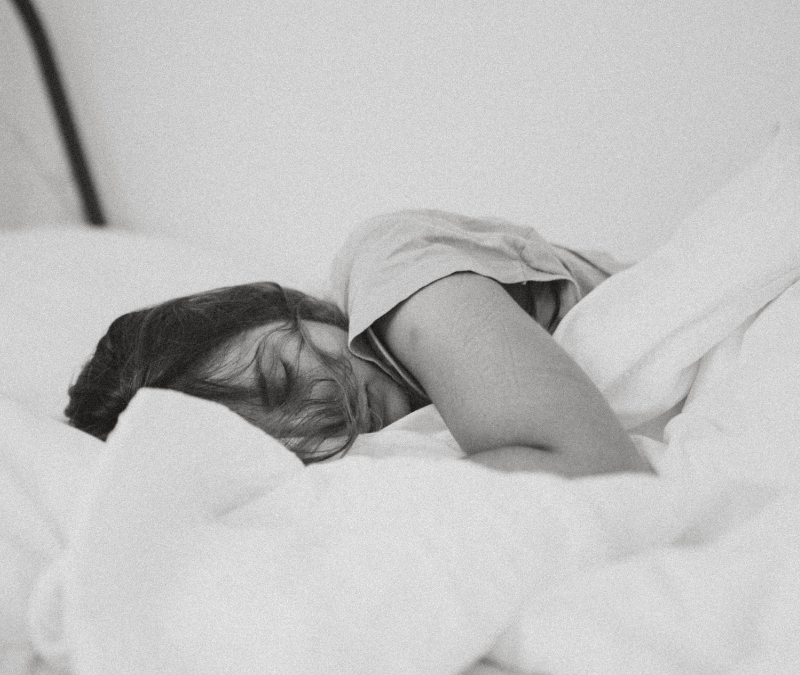7 WAYS TO GET BETTER SLEEP
I saw a meme once that listed how much sleep you really need, according to you astrological sign. I scanned it to find the recommendation for Virgos (that’s me), and it said 8.823345 hours. I have never felt more seen in my life.
I need my sleep. Like, seriously. If I try to push through with less than 8 hours, I hit a brick wall and feel like a hollow shell of a person, all fuzzy on the inside. I absorbed the message from our culture that resting is weakness and strong people can push through, no matter what. But after years of trying to force myself to believe that I’m “fine” on 6.5 hours of sleep, I stopped arguing with reality. I’m fully aware of how crappy I’ll feel if I don’t hit the hay on time, and it’s a daily practice to give myself permission to just do it. My partner is a night owl, so sometimes I feel like I’d be more fun of a person if I stayed up to hang out. Turns out I’m way less fun on less sleep.
I should know, because for a spell there, it wasn’t a choice. I struggled with insomnia for a while a few years back. And for as long as I can remember, I’ve been a super-light sleeper. Once, my partner literally just turned to look at me and I startled awake as if something major had just happened. Like, woah.
Wherever you’re starting from, there are choices you can make and things you can do that could help you get more good quality sleep so that you can avoid being a famished rage monster, snapping at the people you love and having zero tolerance for real life.
Here are some ideas for you to try out:
- Ignore your children when they get up in the night. #boundaries
- Quit your job. You’ll sleep well when you’re not ruminating about that e-mail that Karen from Finance sent at 5pm.
- Your partner snores? Consider getting a divorce.
JK, obvi. But I’m hilarious, right? LOL.
OK, for real now.
Here are seven ways to get better sleep:
Reduce evening screen time
The blue light from electronics interferes with your circadian rhythm. When exposed to blue light later in the day, your body is less able to sense what time it is and stays alert when it would naturally be shutting down otherwise. Consider having a cut-off time for using technology for at least an hour before you’re planning on going to bed.
You can also download f.lux, an app that reduces the blue light on your laptop as the day winds down. Your screen gets its own internal kind of sunset so you’re not as stimulated. If you have an iPhone, you can use the “night shift” feature in your settings to adjust the blue light on a schedule, the same way f.lux works on your computer.
Exercise (but not too late in the day)
When you’re tired from not sleeping well, exercise might sound like the last thing you want to do. But it could be exactly what you need. Exercise also helps to reduce anxiety, so if you can’t sleep because you’re ruminating about #allthethings, you’ll want to give this one a shot – just not too late in the evening so you’re all wired.
Try a calming evening yoga practice
As a long time yogi, it’s kind of funny that I forgot how helpful this one can be. I’ve recently re-instituted a short practice in the evening to help me shift gears from my work day and wind down. Even just a couple of poses go a long way to help me let go of stress and bring my body into a more restful state where I’m ready for sleep.
Child’s pose and constructive resting pose are both very calming. I’m also a big fan of legs up the wall to wind down.

Side note: has anyone else noticed how easy it is to fall asleep in the 5 minutes of savasana lying flat on a hard floor, but it can take like an hour to fall asleep in your comfy bed with all the pillows in just the right place and your body positioned exactly as you want it? No? Just me? OK then, moving on…
Reduce caffeine consumption
I know, I know. You’re probably not even going to read this one. #outofmycolddeadhand But hear me out. Slowly reducing my caffeine consumption made a HUGE difference on my ability to sleep well. I slowly tapered off over the course of a few weeks so my mind nor my body would freak out. Full confesh: I needed a few naps during the transition. But let me tell you, it was a game-changer when it came to sleeping better. Totally worth it.
Drink less alcohol
Here I go, ruining all the fun. It may seem like alcohol helps you get to sleep better in the short term, but its overall effect on sleep is actually the opposite. It may help induce sleep, but it’s ultimately disruptive, especially when it comes to REM, the restorative part of the sleep cycle. So if you want your sleep to leave you feeling refreshed and un-groggy, stop convincing yourself that the wine is helping. It’s really not.
Get more magnesium
Magnesium supports deep and restful sleep by maintaining healthy levels of GABA, a neurotransmitter that promotes sleep. As a bonus, it’s also helpful for stress reduction, mood stabilization, bone health, cardiovascular health, blood pressure and pain relief. It sounds like a miracle mineral…but it’s science. You can get more magnesium through food like whole grains, spinach, almonds, cashews, and peanuts. And…(drum roll please)…DARK CHOCOLATE! Woo hoo! Let’s be real. I’mma eat it anyway because it’s yummy, but it’s nice to know that my body is benefitting in ways other than pleasure too.
Personally, I use Natural Calm, a magnesium supplement that I initially started taking to help with my IBS, and as a bonus, it helps me sleep better too. Of course, I’m not a doctor, so please consult your health professional before taking new things in case they’re not suitable for you.
Try a weighted blanket
This one is a recent discovery of mine. I just bought my weighted blanket a few months ago, and OMG. I’m in love. The blanket weighs 15 pounds, and it relaxes my nervous system like nobody’s business. The first night I got it, I sat on the couch with it for half an hour before going to bed, and it put me into the most lovely falling-asleep-haze. This thing has been a game-changer for me.
You know how babies love to be swaddled? Well, think of this as the grown up version of that. That deep touch pressure has a positive effect on our hormones and creates a sense of calm that promotes sleep.
When it comes to getting better sleep, the little things count. It’s tempting to look for a miracle cure, but often when we look at things like sleep environment, lifestyle habits, the use of stimulants and side effects of medications, we can find ways to give ourselves a better shot at a restful night’s sleep.
How about you? What have you tried to get better sleep? Which one of these 7 might you try?


 Hi! I'm Brigid Dineen, Soul Whisperer. I believe in a world where well-being comes first. I develop bespoke self-care plans and coach women to set healthy boundaries so they can stop trying to live on leftovers and finally develop their dreams.
Hi! I'm Brigid Dineen, Soul Whisperer. I believe in a world where well-being comes first. I develop bespoke self-care plans and coach women to set healthy boundaries so they can stop trying to live on leftovers and finally develop their dreams.
Follow Me!